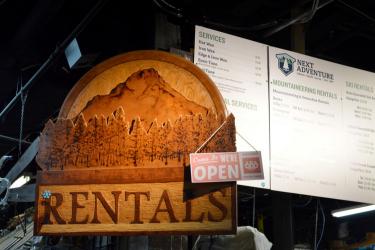
Trip Report: White River Hut
When: 01/06/2017
Location: White River Hut
Conditions: Snowy and Dark
Duration: 2.5 days
Difficulty: harder than easy
Kid Friendly? yes
Pet Friendly? YES!
Useful Links: cascadehuts.com
The Full Report
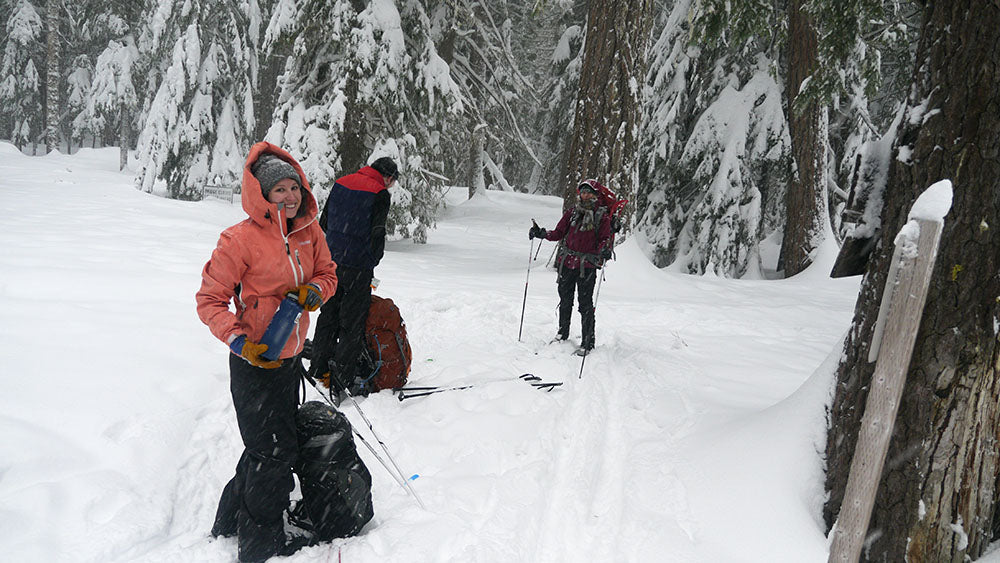 2. Don't over-pack
This is not a river trip. Just because you can drag a sled doesn't mean you should. Call it hubris, but we deemed it necessary to haul a mini-keg into the cabin in a sled and it almost ruined the trip for me. The sled tipped over a lot, and it was a bear to drag out. In the end, whiskey would've done the trick just fine at a fraction of the weight.
2. Don't over-pack
This is not a river trip. Just because you can drag a sled doesn't mean you should. Call it hubris, but we deemed it necessary to haul a mini-keg into the cabin in a sled and it almost ruined the trip for me. The sled tipped over a lot, and it was a bear to drag out. In the end, whiskey would've done the trick just fine at a fraction of the weight.
 3. Your phone has a GPS
We spent a lot of time second guessing our printed out maps and worrying about the direction we were going. Part of our group that skied in earlier did so with the confidence of a downloaded google map cross-referenced with their GPS location. They were confident enough with the digital maps to break trail and take shortcuts. It turns out that even when you don't have cell service, your phone's GPS is still functioning and can pinpoint your location on a downloaded map. A real GPS is definitely the best option, and I wouldn't rely on this method entirely, but had I known, it would have provided a much-needed level of confidence to our nightly arrival at the cabin.
3. Your phone has a GPS
We spent a lot of time second guessing our printed out maps and worrying about the direction we were going. Part of our group that skied in earlier did so with the confidence of a downloaded google map cross-referenced with their GPS location. They were confident enough with the digital maps to break trail and take shortcuts. It turns out that even when you don't have cell service, your phone's GPS is still functioning and can pinpoint your location on a downloaded map. A real GPS is definitely the best option, and I wouldn't rely on this method entirely, but had I known, it would have provided a much-needed level of confidence to our nightly arrival at the cabin.
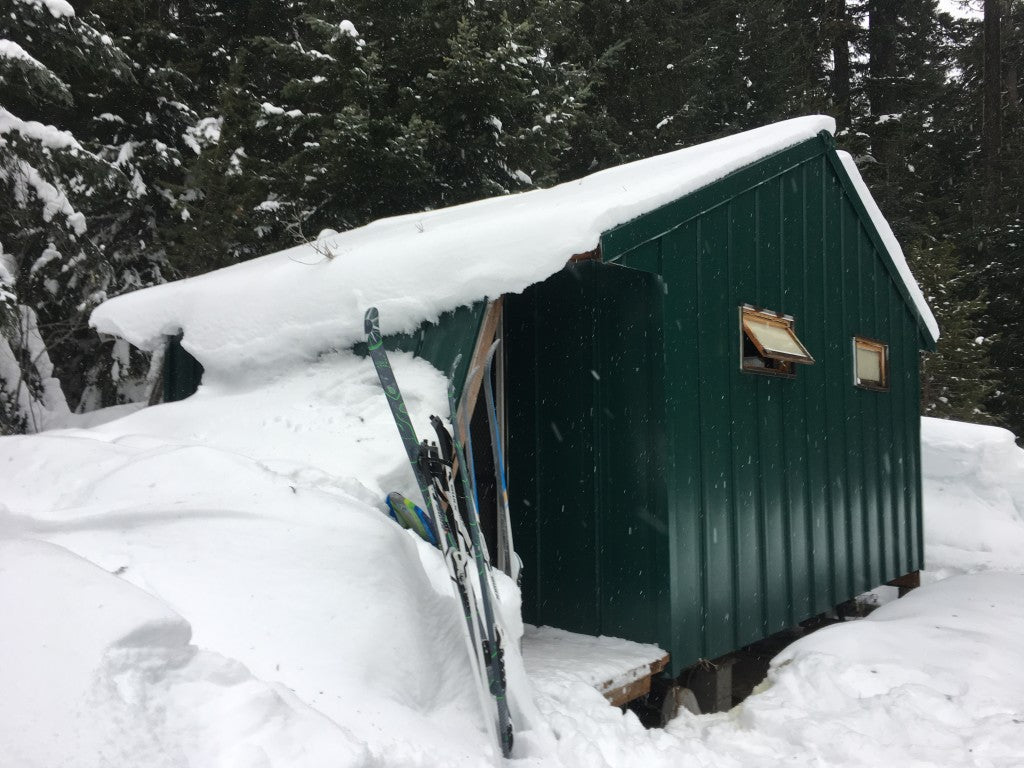
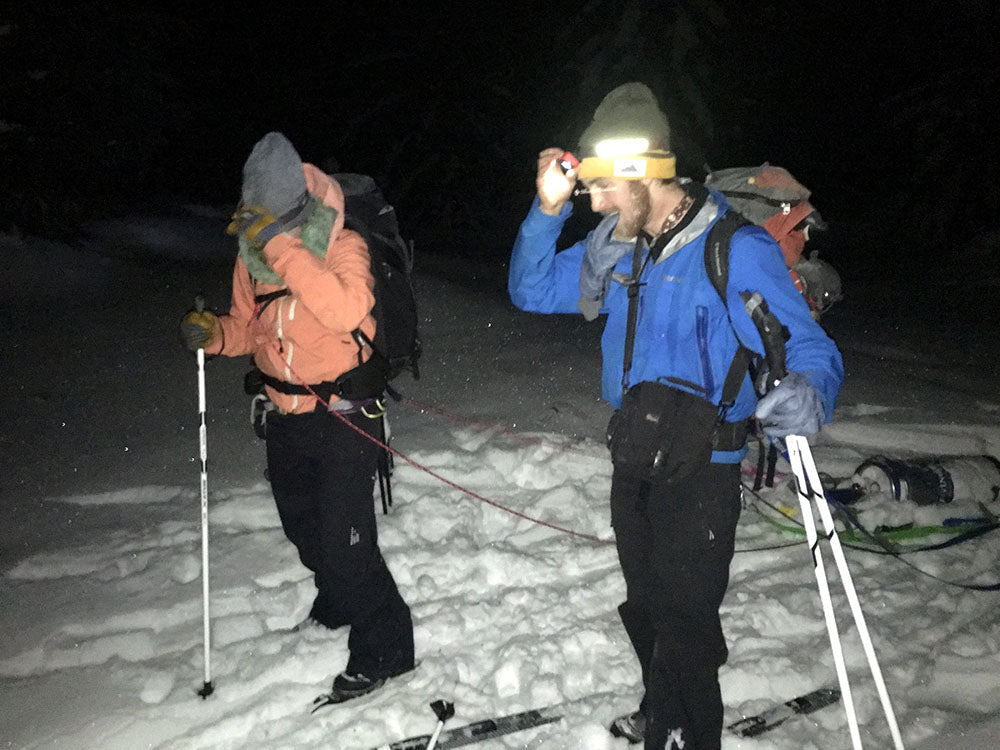
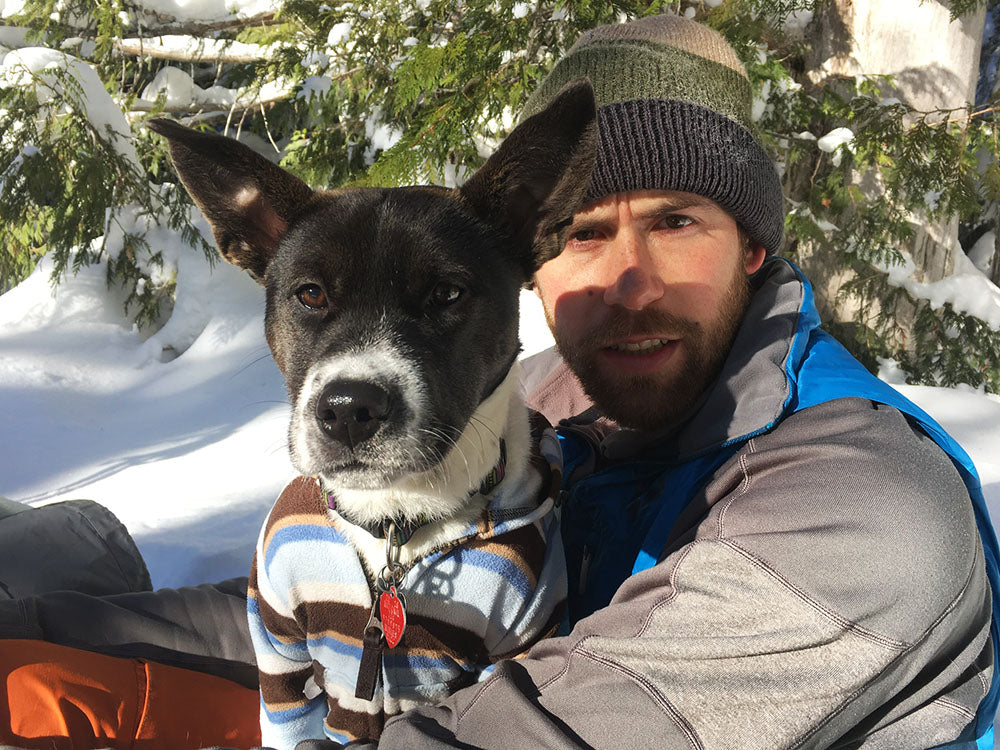
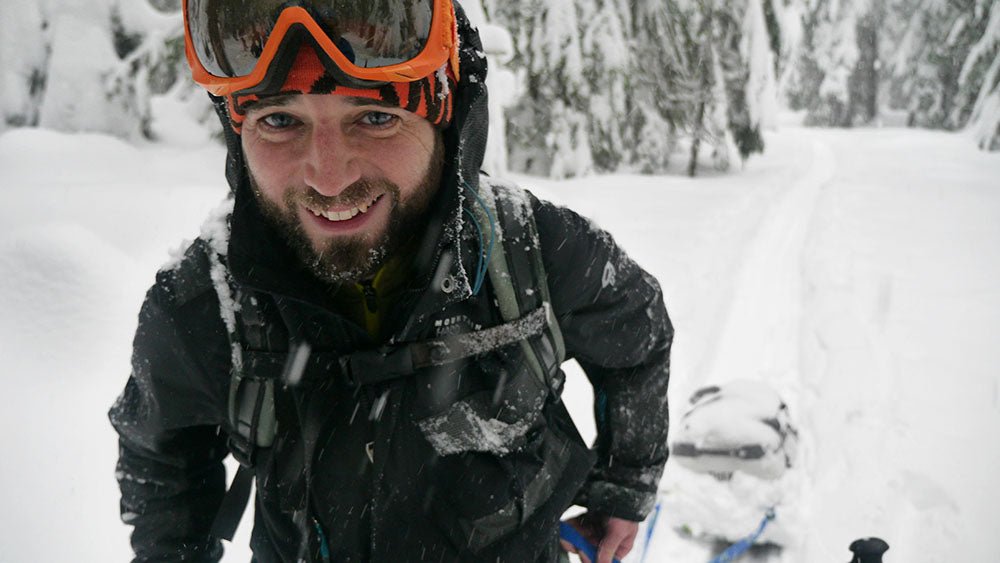
Lesson's Learned in Cross-Country hut skiing...
The weekend of 1/6/17 I organized a trip to the White River hut, near Barlow Pass, OR. It's a 6-mile ski into a rustic cabin in the woods. The groups was all pretty familiar with snow sports and outdoor adventures, but it was our first time doing something like this together. For many of us, it the first time on XC skis.The following is a series of valuable lessons we learned along the way.
1. Start Early
In classic Portland fashion, we didn't hit the trail until about 2:30 PM. We figured that 6 miles of walking wouldn't take much longer than 2 hours, and skiing downhill should be a little faster, right? We were dead wrong. Cross-Country skiing, while being somewhat of a "leisure sport" actually takes a certain amount of skill and even more so when you are hauling in heavy packs and sleds. Our packs and sleds made skiing much harder and we ended up making it to the cabin long after dark. Which brings me to lesson number 2:
 2. Don't over-pack
This is not a river trip. Just because you can drag a sled doesn't mean you should. Call it hubris, but we deemed it necessary to haul a mini-keg into the cabin in a sled and it almost ruined the trip for me. The sled tipped over a lot, and it was a bear to drag out. In the end, whiskey would've done the trick just fine at a fraction of the weight.
2. Don't over-pack
This is not a river trip. Just because you can drag a sled doesn't mean you should. Call it hubris, but we deemed it necessary to haul a mini-keg into the cabin in a sled and it almost ruined the trip for me. The sled tipped over a lot, and it was a bear to drag out. In the end, whiskey would've done the trick just fine at a fraction of the weight.
 3. Your phone has a GPS
We spent a lot of time second guessing our printed out maps and worrying about the direction we were going. Part of our group that skied in earlier did so with the confidence of a downloaded google map cross-referenced with their GPS location. They were confident enough with the digital maps to break trail and take shortcuts. It turns out that even when you don't have cell service, your phone's GPS is still functioning and can pinpoint your location on a downloaded map. A real GPS is definitely the best option, and I wouldn't rely on this method entirely, but had I known, it would have provided a much-needed level of confidence to our nightly arrival at the cabin.
3. Your phone has a GPS
We spent a lot of time second guessing our printed out maps and worrying about the direction we were going. Part of our group that skied in earlier did so with the confidence of a downloaded google map cross-referenced with their GPS location. They were confident enough with the digital maps to break trail and take shortcuts. It turns out that even when you don't have cell service, your phone's GPS is still functioning and can pinpoint your location on a downloaded map. A real GPS is definitely the best option, and I wouldn't rely on this method entirely, but had I known, it would have provided a much-needed level of confidence to our nightly arrival at the cabin.

4. Don't get your skis wet
Seriously! We took a small "shortcut" through a creek bed where we ended up skiing through slush and water. The slush refroze to our skis and picked up more snow and pine needles creating giant, sticky snowballs that made skiing impossible. Removing the snow easily took twice as long as it would have to just go around the whole thing.

5. Bring your dog
If you don't have one, maybe borrow one? Not only will your dog get all the exercise it can handle on the hike in, but it can also be considered another source of heat in the cabin at night. Dog-sledders have used this method for ages and it has even inspired the naming of a rock band (https://en.wikipedia.org/wiki/Three_Dog_Night ) We were all very jealous of Mike and his portable heater "Buffy"

6. Plan to settle in
We spent two nights in the cabin and I would highly recommend doing at least this much. The first night involved a lot of figuring out, including how to stay warm while not dying of carbon monoxide poisoning. The second night, after a day of hanging around camp and playing in the snow was much more comfortable. I would highly recommend spending more than one night at your cabin, as it will give you time to get comfortable and truly appreciate the place you've made it to.

In spite of the many "learning opportunities" that this trip provided, it was a wonderful adventure that I absolutely plan on repeating. If winter camping isn't your thing, the huts are available in the summer time as a mountain bike destination as well. Knowing what I do now, next winter's trip will be even better!

